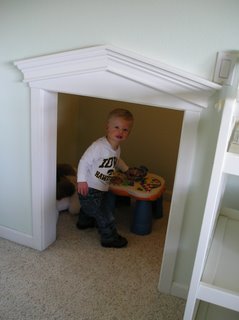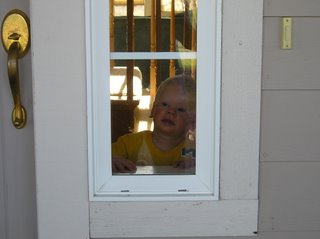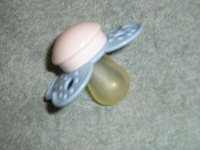Doctor's Office

For the last few days, Erik has not been himself. At first, I thought it was the cold he seemed to be coming down with last Thursday. Then I noticed his skin was irritated and possibly infected in places. He has been naturally rashy from day one. I have every cream, dandruff shampoo, and special soap known to man and am always trying to keep one step ahead of his skin problems without much luck. His face is ruddy, blotchy, and peeling. His legs are alarmingly bumpy and dry. He had cradle cap for over a year with large, orange flakes (thank goodness for blond hair). On top of everything, his tear ducts are clogged, and he always has a little tear on one side or the other. My red, blotchy, tear-streaked boy always gets sympathy from strangers because they think he is sad. Now the perpetually happy boy who doesn’t particularly notice my absence or presence has been fussy, clingy, cuddly, and whiny. Erik and I headed to the pediatric office to see the doctor on call yesterday morning. He diagnosed Erik with a unilateral ear infection and eczema all over his body (even his manly bits). Being opposed to antibiotics unless absolutely necessary, with the doctor’s blessing, I decided to see if Erik can fight the ear infection on his own before filling the prescription for amoxicillin. I did go to the pharmacy to pick up hydrocortisone cream for his face and swollen sensitive areas. I can already see the difference in his face. The doctor told me that the redness will go away with the cream, but his face will always be rough. That makes me a little sad, but I suppose I can live with it. He cried himself to sleep last night but slept and seems just a little cranky but consolable today. The other day Brian and I tried to remember all of the parts of the ear but ended up in fits of laughter because all we could come up with were flower parts like “stamen” and words that sounded suspiciously like parts of a 1979 Dodge Dart. Time to review my ear, nose, and throat terminology, I guess.










